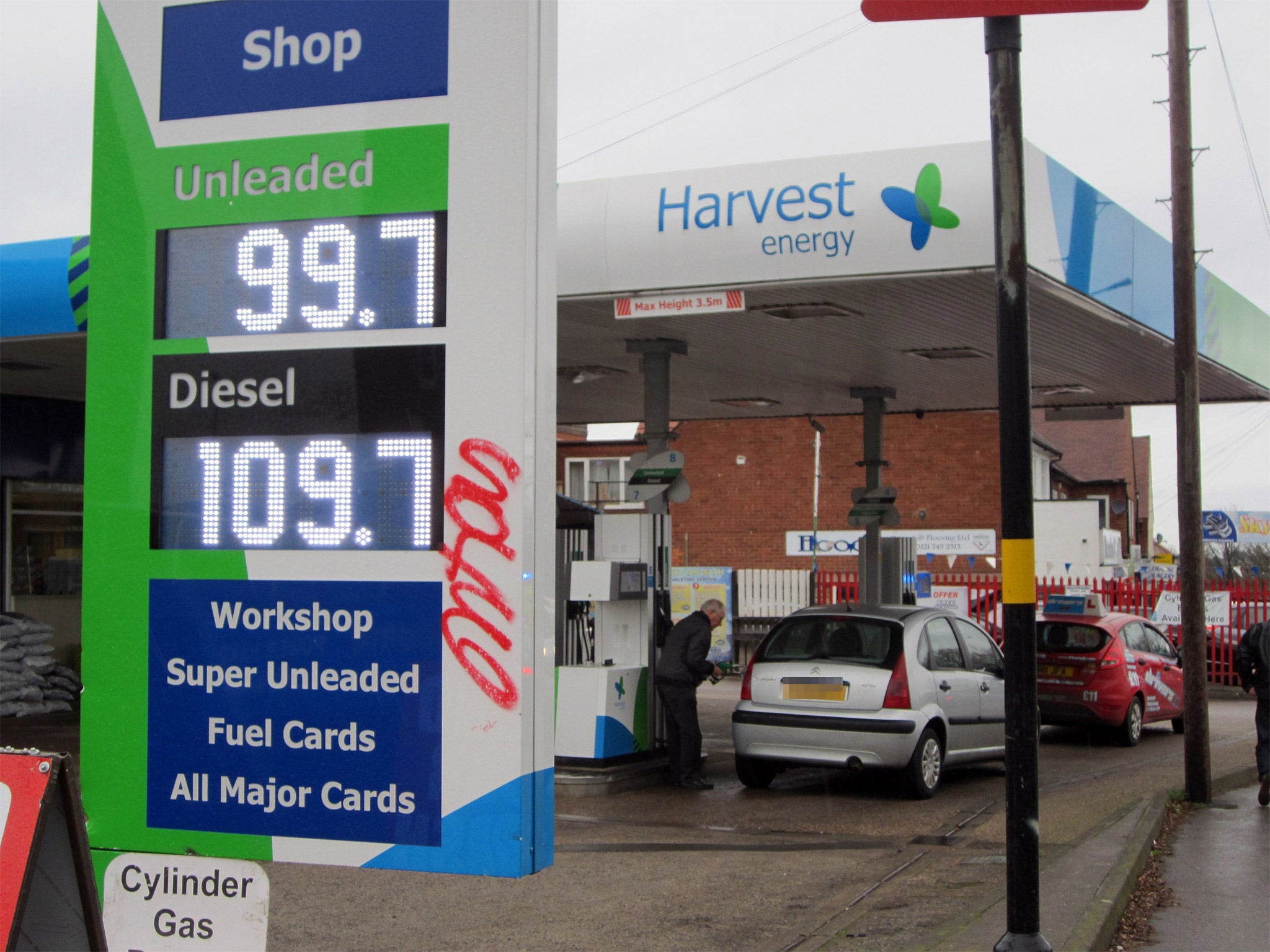Inflation falls to lowest level in more than half a century
The Bank of England said last week that it expected low inflation in the UK to tip over into outright deflation in the spring.

Tumbling fuel and food prices have pushed consumer price inflation down to its lowest level since the 1960s, official statistics showed yesterday.
The Office for National Statistics reported that prices were up only 0.3 per cent annually in January, down from the 0.5 per cent figure in December and slightly lower than the 0.4 per cent that financial analysts had expected.
Massive downward pressure was exerted by fuel prices, which were 31 per cent lower than the same month a year earlier. Food was 2.8 per cent cheaper, while the price of alcohol was down 1.9 per cent. The average price of a litre of unleaded petrol in January was 108.3p, its lowest since 2009.
The news helped lift the FTSE 100 to a 15-year high, with Diageo and Imperial Tobacco leading the way. Unilever, the consumer goods manufacturer, was up just under 2 per cent.
The Bank of England said last week that it expected low inflation in the UK to tip over into outright deflation in the spring. Prices are already falling in the eurozone.
However, the Bank, in common with most economists, thinks the bout of deflation will be benign, boosting household spending and GDP, rather than leading to a period of Japanese-style stagnant growth.
“Falling fuel and milk prices are hardly a cause for panic and certainly not indicative of the UK entering a deflationary spiral of the sort feared by European policymakers,” said Ranko Berich of Monex Europe.
Some economists said that, despite the unexpectedly weak headline inflation reading, there were signs that underlying prices were more robust. Core inflation – which excludes relatively volatile foods and energy – strengthened to 1.4 per cent in January, up from 1.3 per cent in December.
And global oil prices have shown some resilience in recent weeks, with a barrel of crude rising to $61 yesterday, up from $50 at the end of January. “[With] the solid pace of economic growth and signs of a pick-up in pay, the UK is unlikely to face a major period of deflation unless commodity prices fall a lot further,” said Michael Saunders of Citigroup.
The 0.3 per cent inflation figure is the lowest since the ONS’s official records of the series begins in 1989. But experimental modelling by the statistics office suggests that annual CPI was last negative in 1960.
Last week, Mark Carney, the Governor of the Bank of England, said that people should “enjoy” the dip in inflation while it lasts. He predicted that a combination of rising wages and falling energy and food prices would help household finances and boost the growth of real take-home pay this year to its fastest rate in a decade.
George Osborne hailed the latest drop in inflation as a “milestone” for the British economy. However, Labour’s Cathy Jamieson said: “A few months of falling world oil prices won’t solve the deep-seated problems in our economy. That’s why we need Labour’s plan to build a more productive economy that will earn our way to higher living standards for all and get the deficit down too.”
Subscribe to Independent Premium to bookmark this article
Want to bookmark your favourite articles and stories to read or reference later? Start your Independent Premium subscription today.

Join our commenting forum
Join thought-provoking conversations, follow other Independent readers and see their replies